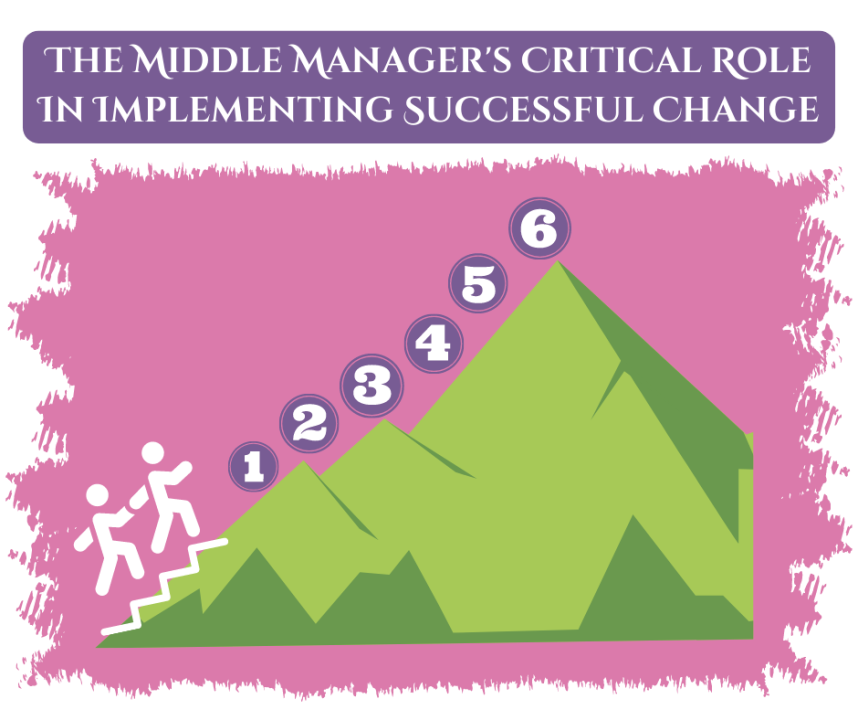Understanding The Value Of Middle Managers In Today's Workplace

Table of Contents
Bridging the Gap Between Leadership and Employees
Middle managers act as a crucial communication bridge, translating strategic goals from upper management into actionable plans for their teams. They are the vital link that ensures alignment between the company's overall vision and the daily tasks of individual employees.
- They clarify expectations and ensure everyone understands their roles and responsibilities. This prevents confusion and ensures everyone is working towards the same objectives. A clear understanding of roles minimizes conflict and maximizes efficiency.
- They facilitate open communication, fostering a two-way flow of information between leadership and employees. This includes actively soliciting feedback from team members and relaying concerns and suggestions to upper management. This open dialogue is essential for creating a transparent and collaborative work environment.
- They address employee concerns and escalate issues to higher management when necessary. This proactive approach prevents small problems from escalating into larger, more difficult-to-solve issues. It demonstrates care for employee well-being and fosters trust.
This two-way communication helps prevent misunderstandings and fosters a more collaborative work environment. Effective communication from middle managers directly improves employee morale and productivity. Poor communication, on the other hand, can lead to decreased efficiency and increased employee turnover. Investing in effective middle management communication training is a crucial step towards a more productive and engaged workforce.
Driving Team Performance and Productivity
Middle managers are directly responsible for overseeing and motivating their teams. Their leadership style directly impacts team performance and overall productivity.
- They provide day-to-day guidance, mentorship, and support to their team members. This includes offering constructive feedback, providing training opportunities, and acting as a resource for their team. Mentorship from middle management is crucial for employee development.
- They identify and address performance issues promptly. Proactive performance management ensures that underperformance is addressed swiftly, preventing further setbacks and maintaining high team standards.
- They delegate tasks effectively and monitor progress towards goals. Effective delegation empowers team members and ensures workloads are managed efficiently. Regular monitoring ensures projects stay on track.
- They foster a positive and productive team environment. Creating a supportive and collaborative atmosphere is key to driving high team morale and productivity. Middle managers are responsible for cultivating a positive team dynamic.
By empowering their teams and providing regular feedback, middle managers contribute significantly to increased productivity and improved team cohesion. This leads to better project completion rates and higher quality work. Investing in middle management training focused on performance management is a direct investment in team success.
Fostering Employee Development and Engagement
Middle managers play a critical role in employee growth and development, contributing to increased employee engagement and retention.
- They identify training needs and support employee skill development. Recognizing skill gaps and providing appropriate training helps employees grow professionally and enhances their value to the company.
- They provide opportunities for mentorship and career advancement. Guiding and supporting employees' career aspirations fosters loyalty and engagement. Middle managers act as internal career coaches.
- They recognize and reward employee achievements. Acknowledging accomplishments boosts morale and motivates continued high performance. Recognition is a powerful tool for driving engagement.
- They actively promote a culture of learning and growth. Fostering a learning environment encourages employees to continuously develop their skills and remain engaged in their work.
Engaged employees are more productive, innovative, and loyal. Middle managers who invest in their teams' development create a positive feedback loop that strengthens the entire organization. This translates to reduced employee turnover and enhanced workplace satisfaction. A strong emphasis on middle management development programs directly contributes to a more engaged workforce.
Identifying and Adapting to Change
Middle managers are often the first to notice emerging trends and challenges within their teams and departments. Their proximity to daily operations provides valuable insight.
- They provide valuable feedback to upper management, informing strategic decision-making. Their ground-level perspective is invaluable for shaping company strategy and ensuring that decisions are practical and effective.
- They help implement organizational changes effectively, mitigating potential disruptions. Their understanding of team dynamics allows them to manage change smoothly and minimize disruption to productivity.
- They adapt to evolving business needs and adjust team strategies accordingly. Adaptability is crucial in today's dynamic business environment. Middle managers must be able to adjust their approach to meet changing demands.
Their proximity to the day-to-day operations makes middle managers invaluable in identifying areas for improvement and implementing necessary changes efficiently. Their insights ensure that organizational strategies are grounded in real-world practicality. Investing in training that focuses on change management for middle managers is crucial for successful organizational transformation.
Conclusion
The value of middle managers in today's workplace is undeniable. They are not simply a layer of bureaucracy, but rather a critical link connecting leadership and employees, driving productivity, fostering growth, and adapting to change. By investing in effective middle management training and development, organizations can unlock significant improvements in employee engagement, team performance, and overall business success. Ignoring the importance of well-trained middle managers is a missed opportunity to harness the full potential of your workforce. Re-evaluate the role of middle management in your organization and discover how to leverage their unique skills and expertise to achieve your business goals. Investing in strong middle management is investing in your company's future.

Featured Posts
-
 New York Knicks The Landry Shamet Conundrum
May 17, 2025
New York Knicks The Landry Shamet Conundrum
May 17, 2025 -
 Mitchell Robinsons Season Debut Knicks Center Returns After Ankle Surgery
May 17, 2025
Mitchell Robinsons Season Debut Knicks Center Returns After Ankle Surgery
May 17, 2025 -
 Ryujinx Emulator Development Halted Nintendos Impact
May 17, 2025
Ryujinx Emulator Development Halted Nintendos Impact
May 17, 2025 -
 Pga Championship Day 1 Surprises And Disappointments Mark The Start Of The Tournament
May 17, 2025
Pga Championship Day 1 Surprises And Disappointments Mark The Start Of The Tournament
May 17, 2025 -
 The Caitlin Clark Question Angel Reeses Blunt Response
May 17, 2025
The Caitlin Clark Question Angel Reeses Blunt Response
May 17, 2025
Latest Posts
-
 Analysis Former Mariners Infielders Criticism Of Seattles Offseason
May 17, 2025
Analysis Former Mariners Infielders Criticism Of Seattles Offseason
May 17, 2025 -
 Quiet Winter For Mariners Former Infielders Scathing Critique
May 17, 2025
Quiet Winter For Mariners Former Infielders Scathing Critique
May 17, 2025 -
 Mariners Giants Injury Update Key Players Out For April 4 6 Series
May 17, 2025
Mariners Giants Injury Update Key Players Out For April 4 6 Series
May 17, 2025 -
 Seattle Mariners Face Backlash For Quiet Winter Former Infielder Speaks Out
May 17, 2025
Seattle Mariners Face Backlash For Quiet Winter Former Infielder Speaks Out
May 17, 2025 -
 Giants Vs Mariners Injury Report April 4 6 Series Preview
May 17, 2025
Giants Vs Mariners Injury Report April 4 6 Series Preview
May 17, 2025
